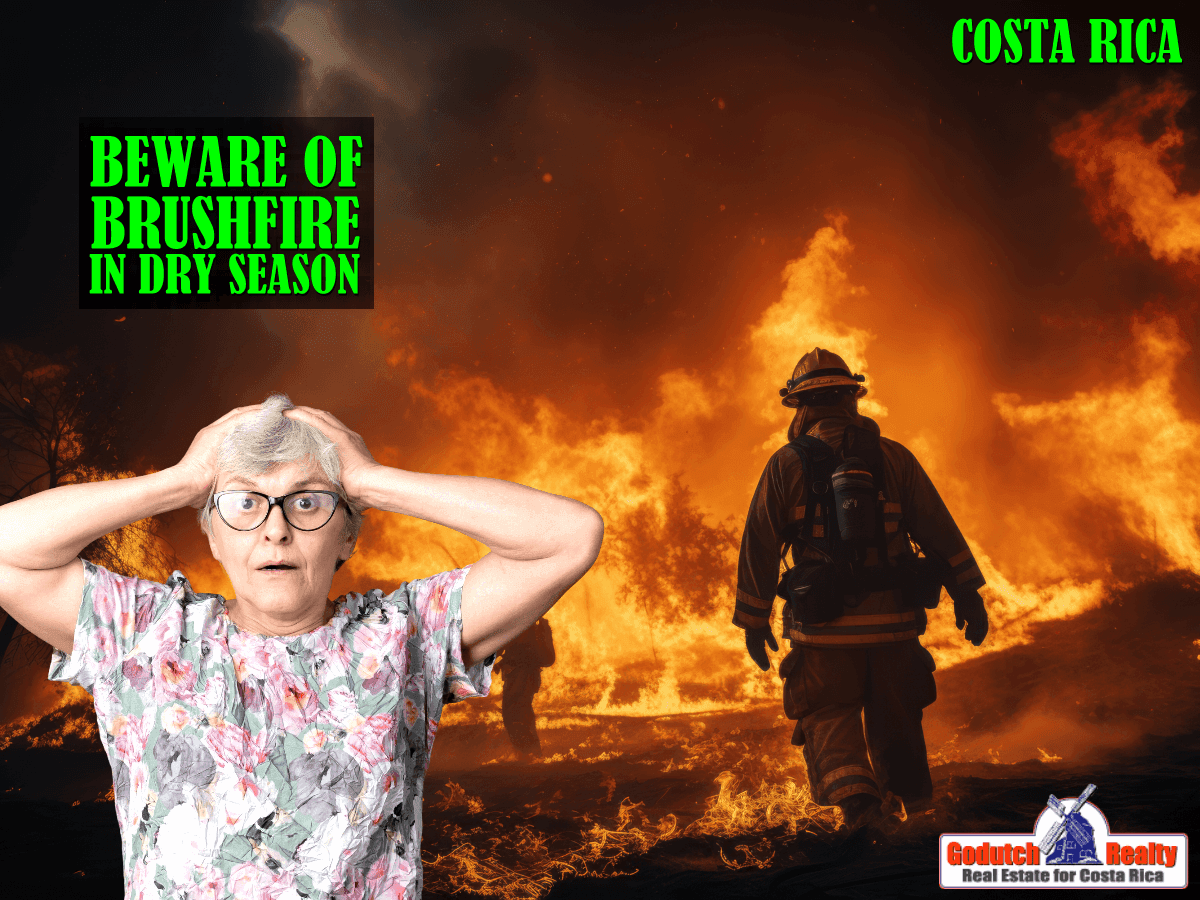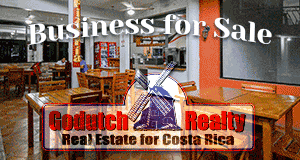Estimated Reading Time: 4 Minutes
Beware of the brush fire during the dry season! If you own property in Costa Rica, especially in the warmer areas of the country, you should pay attention to the windy months of December, January, and part of February. A brush fire is easily started and can pose a danger to your property and to you and your family.
If you are living next to a building lot or a farm, you will find that during the rainy season, the grass and weeds have grown tremendously. In a very short time (depending on how warm it gets), the long grass will dry out and catch fire very easily. Due to the strong winds, a brush fire can move quicker than you can run.
When your property is located in a condominium or even in an agricultural community without bylaws, cleaning the vacant building lots is often included in your HOA fees. This could be a reason for high condo fees. If you live in a gated community that is not regulated by legal bylaws, like many of the communities in Atenas or in the beach mountain areas, you are on your own, and you should take action.
A glass bottle, a burning cigarette, or even a stupid neighbor who burns his grass too lazy to cut it might get you into trouble. In Costa Rica, when your house burns down because the neighbor didn’t cut his grass, you are responsible for the disaster yourself and not your neighbor. Suing your neighbor will lead nowhere and will only cost more money.
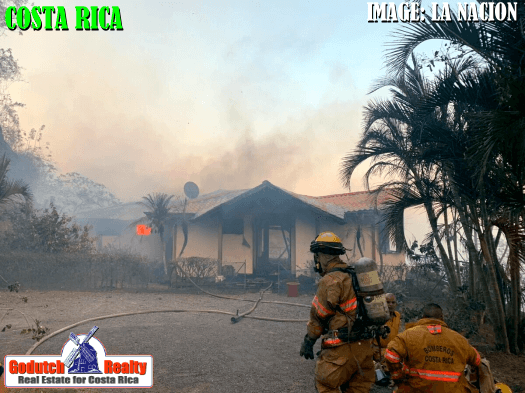
Be Pro-active
Protecting your property is mostly the same as everywhere else. As a savvy homeowner, you will responsibly take progressive action, or you will have a problem.
Pro-active action can include any or all of the following:
1. Contact Your Neighbor
Talk to your neighbor in the last week of November. Put it on your agenda; the agenda on your cell phone lets you set the recurrence of your note to repeat once a year on the same date. Ask this neighbor to have their grass cut as soon as they can.
2. Ask For a Fire Break
If your neighbor doesn’t want to spend the money to clean the whole lot or farm, request cleaning of a firebreak 10 meters (30 feet) wide.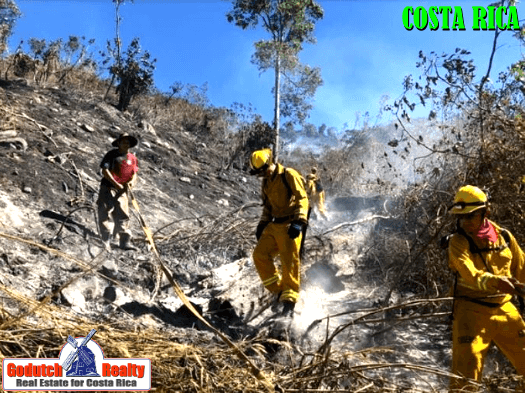
3. Ask the Municipality
If you don’t know who your neighbor is, pay a visit to the Municipality. Tell them you would like to contact your neighbor to prevent a brush fire or “quemas” during the dry season. Most municipalities will provide you with an up-to-date address or a way to contact your neighbor.
4. Try Other Neighbors
If the Municipality doesn’t know how to contact the owner, you might try contacting other neighbors. In many communities, there will be someone who has a list of all owners and their contact addresses. They can probably also give you some feedback about this neighbor.
5. Ask your Realtor
You can also ask the realtor who sold you the property. Often, the realtor knows who your neighbor is, especially if he/she have worked in your area for a long time (those are the good ones).
6. Cut a Fire Break Yourself
Create a fire break on your side of the fence. If that is not enough, there is a very good chance no one will complain about your trespassing to cut a firebreak yourself. Or you can pay someone to do it.
7. Be Able to Get Out
Make sure that the bars on your windows and doors don’t prevent you from getting out fast in the middle of the night when necessary.
8. Fire Insurance
Get home insurance against fire. Ask your realtor to recommend an insurance agent in your area.
9. Follow the Drawing
Take other measurements as shown in the drawing below.
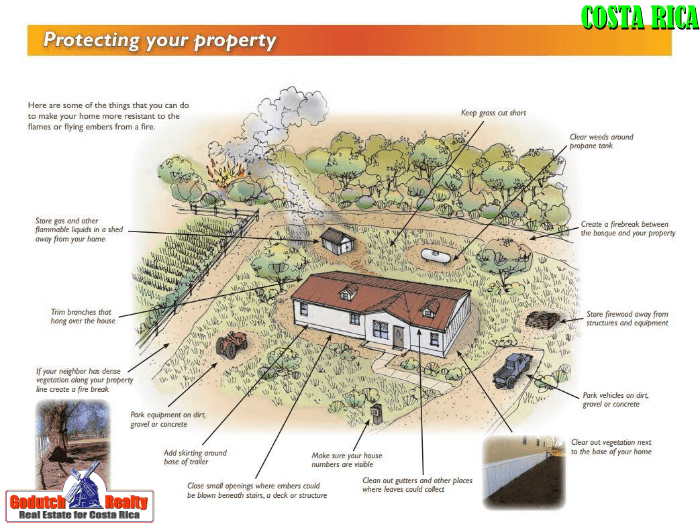
A few more
Here are a few more recommendations that’ll help keep you safe:
- Install metal screens on vents to prevent embers from entering.
- Have a quick-grab kit with N95 masks (to filter smoke), water, a flashlight, a first-aid kit, essential documents, and medications.
- Know at least two escape routes for you and your pets.
If you don’t want all that hassle with fire breaks, you should live in a condo with a full-time maintenance crew. With pleasure, I will introduce you to areas where wildfires are rare and show you the best condos for sale. Do your homework, feel free to comment on this blog, and share this article on your social media. Would you like to learn more about buying property in Costa Rica? Then request a Zoom meeting with me now.

